From Syria to Ukraine. How Russia Employs Double-Tap Strikes Tactics
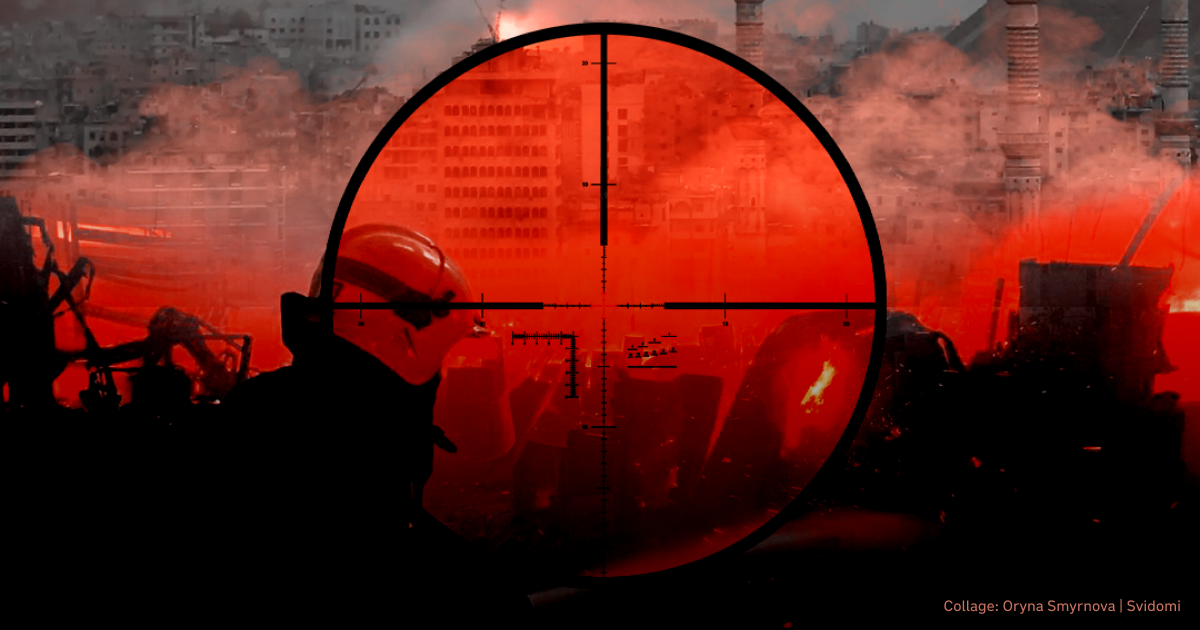
On October 21, Russia employed a double ballistic missile attack on Kryvyi Rih. During the second attack, patrol officers helped evacuate residents. One police officer was injured in the shelling.
Russia regularly employs a technique called "double-tap", which is illegal under international law. Civilians and emergency workers are killed by shelling in Ukraine. But it is not only in Ukraine that Russia uses double-tap strikes.
Svidomi explains what double-tap strikes are, how Russia employs the technique in Syria, and whether it can be countered.
Russia targets rescuers
Yevhen Vasylenko, a spokesman for the State Emergency Service in the Kharkiv region, says that sometimes rescuers, medics and police are killed or injured in double strikes. Since the start of the invasion, eight rescuers have been killed in the Kharkiv region, six of them in double-tap attacks.
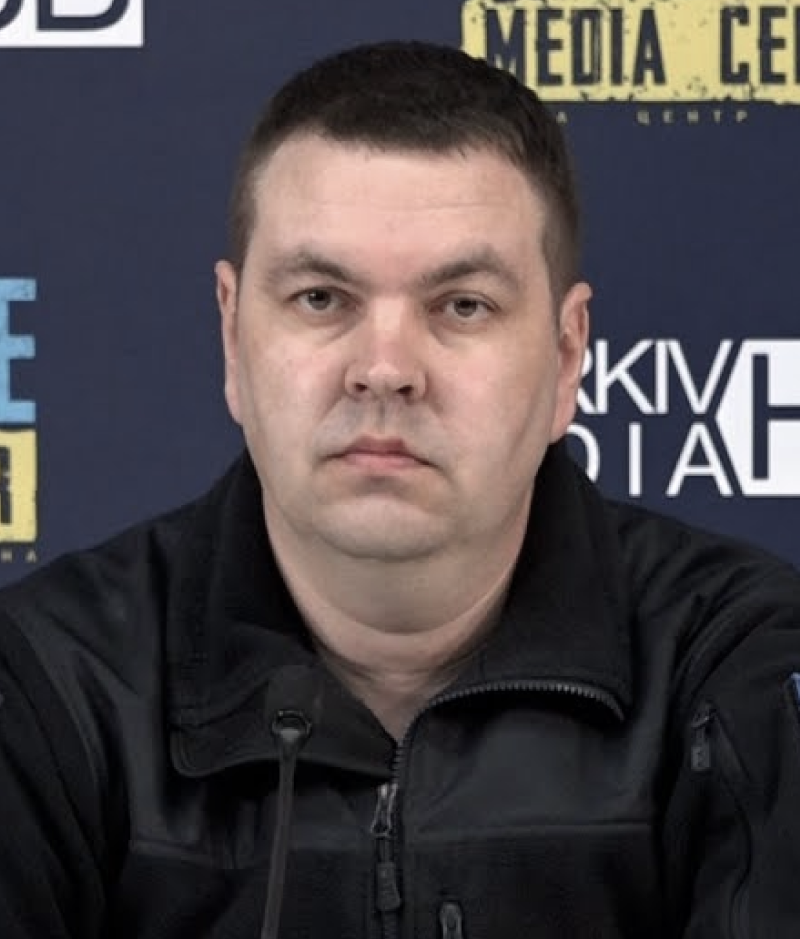
According to the safety protocol, rescuers should go to a shelter in case of an alarm, but there are cases when the time to save a person is counted in seconds. Unfortunately, at the cost of the rescuers' own lives,
says Yevhen Vasylenko.
On April 4, a rescuer from Kharkiv, Volodymyr Lohinov, lost his father, who was also a rescuer. Vladyslav Lohinov was killed in a double Russian 'shahed' attack. As the emergency services were working at the scene, the Russian military struck again with a drone. This time two more rescuers, Serhii Baidalinov and Volodymyr Matiushenko, were killed in addition to Vladyslav.
His father was Volodymyr Lohinov's close friend. He and his colleagues had a tradition of meeting for coffee in the park after their shifts and discussing their duties. Father and son worked in the same district but in different units: Volodymyr worked in the third unit, and Vladyslav in the sixth. They often worked together on shelling sites.
"It is difficult for Volodymyr and the others to talk about their fallen colleagues. The guards lost three friends that day. They are like a family: they cook together, sometimes celebrate birthdays and baptise each other's children. You could say their bonds were forged in the flames. And when they work, they hold hands and go into the smoke to put out the fire. This means that their lives depend on each other in the truest sense of the word," says Yevhen Vasylenko.
As a result of Russia's double attack on Ukraine during the full-scale invasion, 92 rescue workers were killed and 398 injured. In particular, on July 13, an attack on the village of Budy in the Kharkiv region killed a medic and a policeman. Also, on August 7, seven people were killed and 67 injured in Pokrovsk, Donetsk region. Among them were 29 police officers and seven rescuers.
What is a double-tap strike?
A double tap is a warfare method in which an initial air strike is followed by a second attack, often targeting rescue workers, police, and medics or civilians trying to help the injured in the first attack. The Russian army is not the only one using this tactic in Ukraine. Previously, Russia, together with the Syrian regime of Bashar al-Assad, used double strikes in Syria to kill civilians and destroy humanitarian and military assets.
Double strikes are a gross violation of international humanitarian law, as the principle of distinction (which clearly distinguishes civilians and combatants and civilian and military objects to protect the population and civilian objects from the effects of hostilities—ed.) prohibits directing attacks against noncombatants. They can also violate provisions ensuring the protection of medical personnel.
However, according to an analytical article by Mercedes Sapuppo and Shelby Magid of the Atlantic Council’s Eurasia Center, there does not yet appear to be a publicly disclosed formal governmental or intergovernmental mechanism dedicated to comprehensively tracking and publishing cases of Russia’s double-tap strikes in Ukraine. The known body of public evidence of these crimes relies heavily on reports by civil society investigators, humanitarian watchdogs, and Ukrainian and international media. Such sources are often cited by the Organization for Security and Cooperation in Europe (OSCE) and other institutions.
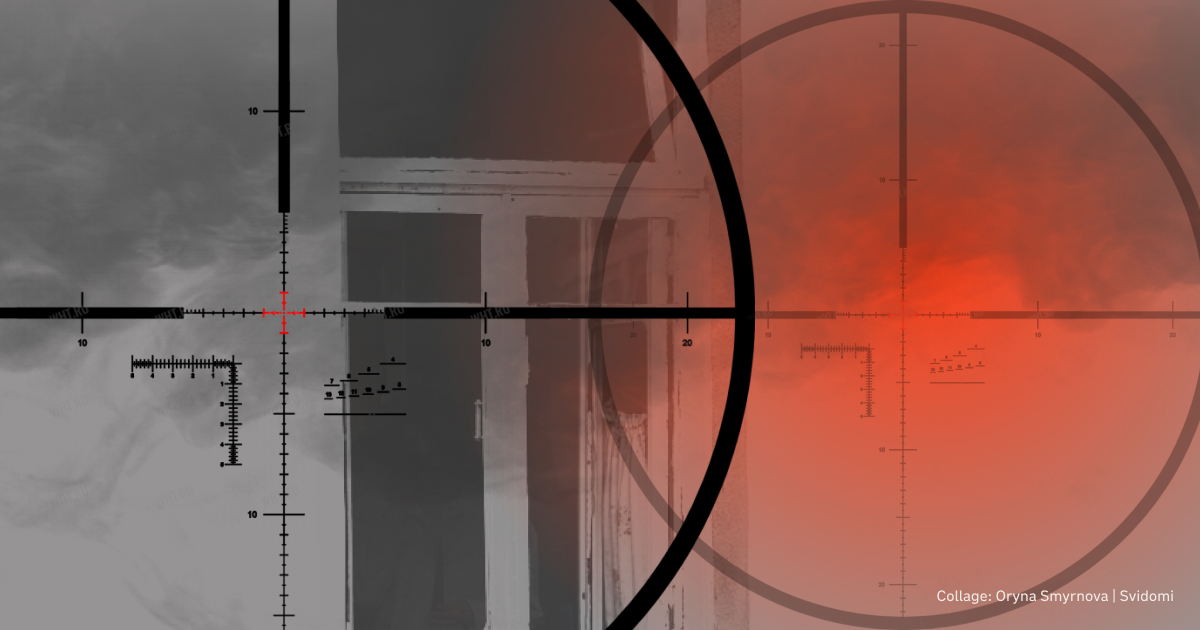
Double-tap strikes in Syria
Russia began employing double strikes even before its full-scale invasion of Ukraine in February 2022. In 2015, at the request of Syrian President Bashar al-Assad to President Putin, the Russian military used a double-tap tactic to destroy Aleppo, as well as several other villages and districts. Russian troops targeted markets, hospitals, clinics, farms and residential areas.
Nessma Bashi, a human rights lawyer and legal officer at the Syria Justice and Accountability Centre (SJAC), told The New Arab that the double-taps "instil fear in civilians who are trapped with nowhere to hide" and "cause large-scale damage to identifiable civilian areas and terrorise civilians".
A 2022 report published by the Syria Justice Centre SJAC notes that Russian forces carried out double strikes against the White Helmets, a non-governmental volunteer organisation, in a Damascus suburb in March 2018. The report lists 58 double attacks between 2013 and 2021 by Syrian and Russian forces that targeted residential areas.
Russia was not held responsible for the double strikes on populated areas in Syria. However, in May 2024, the UN Human Rights Committee in Geneva, which monitors the implementation of the International Covenant on Civil and Political Rights (ICCPR), submitted a statement stating that the Russian government had conducted targeted air strikes on a hospital in Idlib province in May 2019. The strikes killed the cousins of one of the applicants, as well as representatives of a humanitarian organisation who were in the hospital and providing assistance to patients. The statement contains "overwhelming" evidence that the strike was "part of a systematic attack on hospitals and medical facilities in opposition-controlled Syria in 2019," said the director of the humanitarian organisation Hand in Hand International.
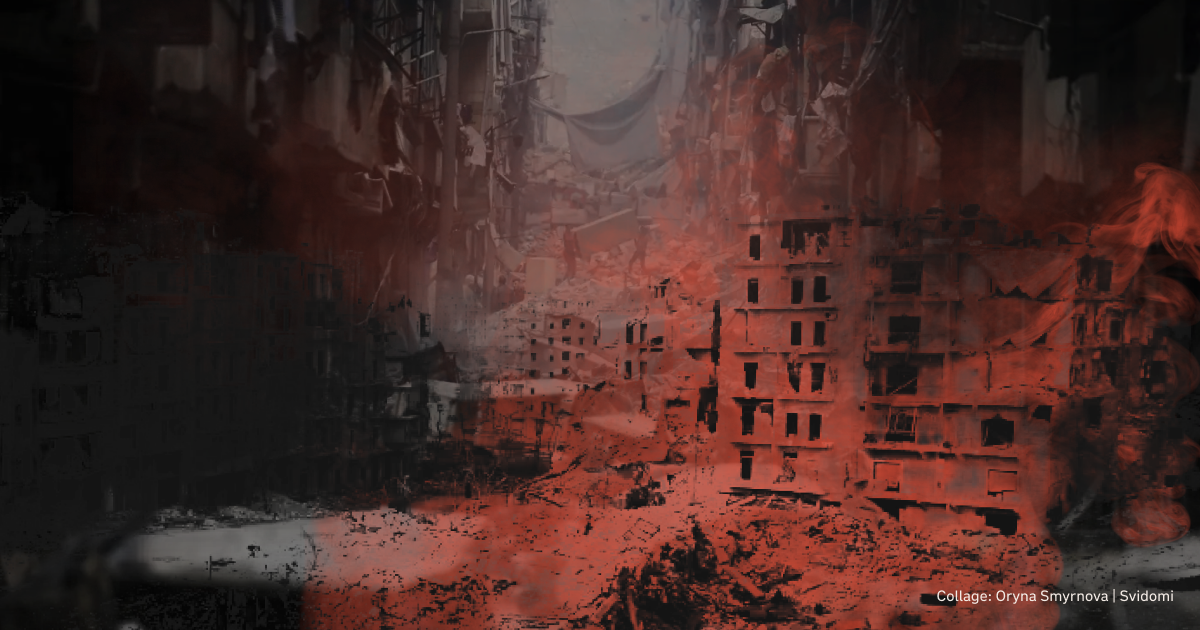
A month after the start of the full-scale invasion, Mona Yacoubian of the United States Institute of Peace published an article drawing attention to the "chilling parallels" between Moscow's actions in Syria and Ukraine. She suggested that "Russia’s Syrian playbook may provide additional insights into its approach to diplomacy as well as how Russia now envisions its eventual Ukrainian endgame."
Human rights reporter and investigator Janine di Giovanni, co-founder of The Reckoning Project, which collects evidence of war crimes in Ukraine, explained that "we should always look back to what Putin did in Aleppo. Because the tactics he used there were a playbook that he set in motion and continues to use in Ukraine now".
International response to shelling of Ukrainian cities
Commenting on Russia's use of double-strike tactics in Ukraine in April, Chargé d'Affaires at the US Mission to the OSCE Timothy Hanway highlighted "credible reports of the Russian military’s use of secondary strikes in Ukraine against civilians — including paramedics and first responders — who gather to assist victims of a first, initial strike". He noted that "the Russian government is following its own example from Syria", stressing that Russia's use of these war patterns in Ukraine was not a surprise.
In the OSCE report of April 2022, experts pointed to double strikes as a component of "clear patterns of international humanitarian law violations by the Russian forces in their conduct of hostilities."
In the United States, Congressman Joe Wilson, Chairman of the U.S. Congressional Helsinki Commission, compared the shelling of Ukrainian cities to the destruction of Aleppo, stating that "war criminal Putin is also known for the double-tap strikes which gruesomely target emergency personnel, medical personnel, police, firefighters, and volunteers as they search for survivors following the first round of attacks." Strong condemnation was also expressed by Norway, the United Kingdom, the United Nations and other countries and institutions.
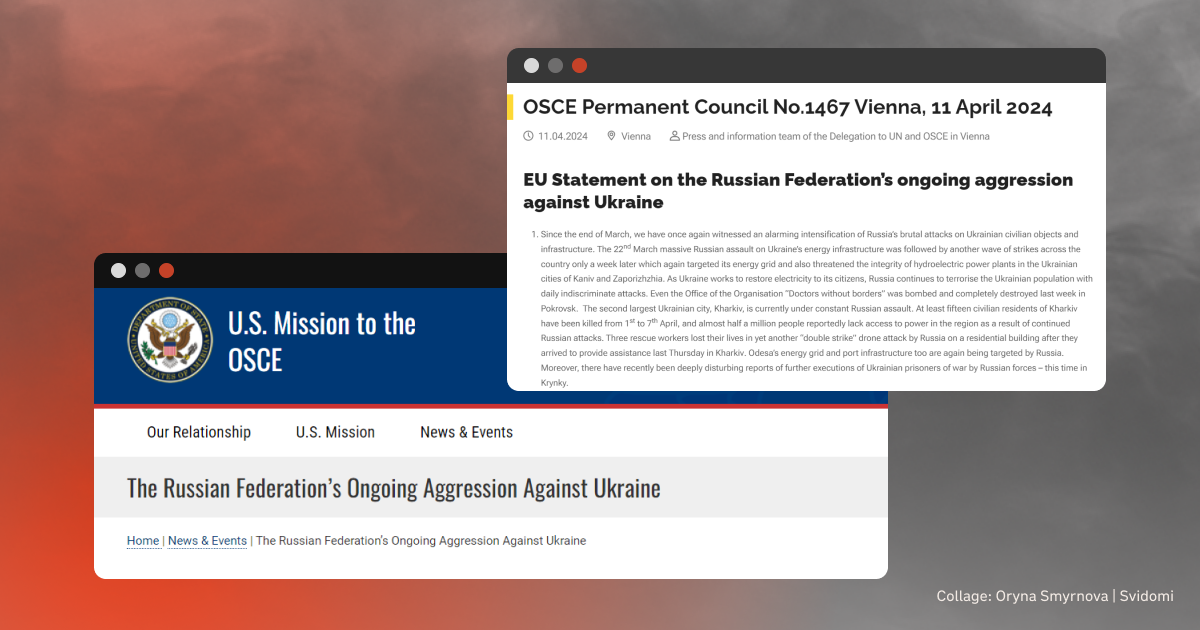
How can the US and NATO respond?
According to the Atlantic Council's Eurasia Center, Ukraine needs the right equipment to prevent further Russian attacks. "As there are no specific military tactics to address or prevent a double-tap strike — the most effective response is the same as with all aerial attacks — Ukraine must strike the Russian assets that are launching them. Targeting the means of war, with increased military support from Western partners (both materiel and proper guidance for how such weapons can be used), would allow the Ukrainian military to better deter and counter Russia’s" attacks.
It is also important to hold Russian forces legally accountable for their crimes. To counter the tactic of double strikes, the international community should prioritise investigating and prosecuting double strikes. During Russia's invasion of Syria, the country's civil defence and other organisations on the ground documented the use of these strikes, which ultimately allowed for the collection of evidence available to national and international investigative bodies. This has also helped to engage non-governmental organisations, such as SJAC, which can help investigate these crimes.
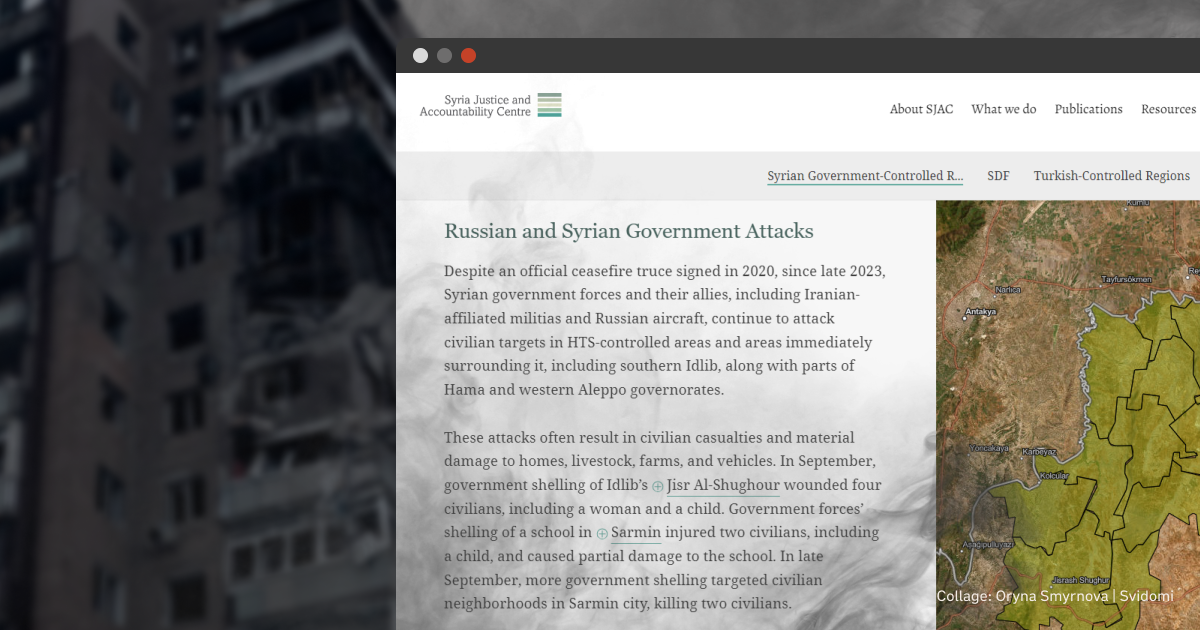
In Ukraine, such a mechanism may include evidence collected by the rescuers themselves. According to Oleksandr Khorunzhyi, a spokesman for the State Emergency Service of Ukraine, the service is already beginning to provide rescuers with body armour equipped with body cameras. The international community should fund and supply this equipment and help coordinate the collection of evidence.
As stated in paragraph 7 of Ukraine’s Peace Formula, which President Zelenskyy proposed to the G7 in October 2022, "Accountability shall be ensured for the most serious crimes under international law." One of them is the double-tap strikes tactic.


